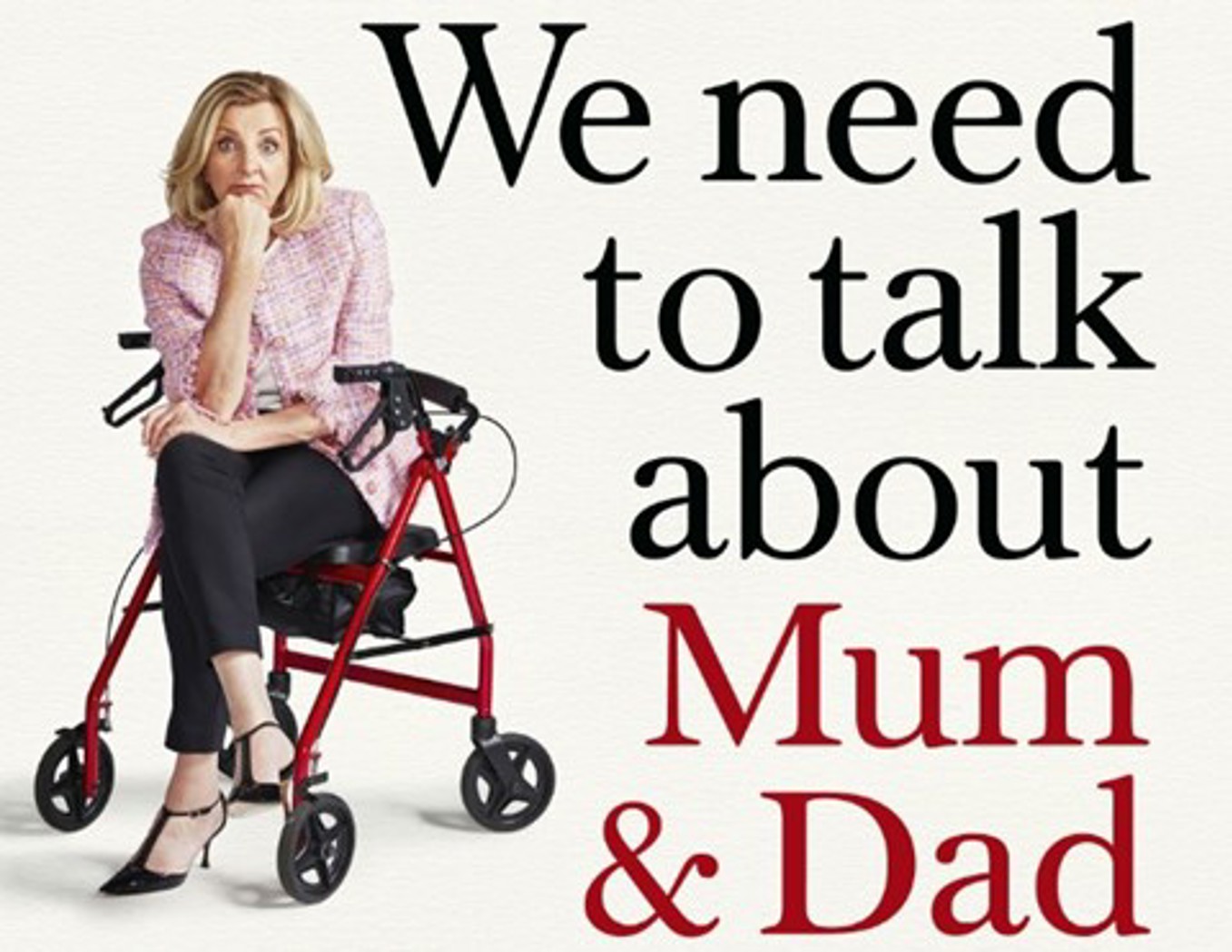Why you should talk to your parents about their future care needs
06/12/2023

Comedian and actor Jean Kittson is one of the 2.65 million people in Australia who play an essential role as carers.
The 68-year-old supports her parents, Elaine and Roy, who still live at home.
“They're still living independently,” Jean told Woman’s Day. “Mum’s 99 this year and Dad’s 96, and I’m about to get some more support. They have a great team around them.”
She has written a guide We Need to Talk About Mum & Dad: A practical guide to parenting our ageing parents, published by Pan Macmillan Australia.
Accept the support available
One major barrier that prevents people from accessing support is that they may not realise they are carers.
Jean said it common when someone is caring for their partner, especially if they’re giving each other mutual support, that they do not see themselves as carers.
“My mother has been legally blind for about 20 years with macular disease, so Dad would probably identify as her carer for many years, making the tea, cooking and things like that,” she said.
“But in another way, my mother cares for my father by keeping him on track, getting him out of bed and making him have a shower. So, it can be mutual, and people don’t identify.
“They may not want to say, ‘I’m someone’s carer.’ [They’ll say] ‘I’m just their partner and I’m doing what I can to make their life as good as it can possibly be.
“Sometimes you need to say, ‘Well, actually, I do have a caring role. And I can get a lot of support’. Because once you actually understand what your role is, there is a lot of support for you.”
Talk to your parents about future needs regularly
It is not wrong to ask for help and it is recommended that the siblings speak regularly to their ageing parents.
“It’s actually opening up a really healthy and joyous conversation about making sure that our elders’ wishes are heard,” said Jean.
“And it’s not just one conversation about what you want and how you see your life. It’s many conversations so everyone’s on the same page.”
Jean said by talking to them, you will have a better idea of when to step in, but also when it is not necessary.
“It will actually give them more control over their lives and more independence for longer rather than less,” she said.
Solid advice.














